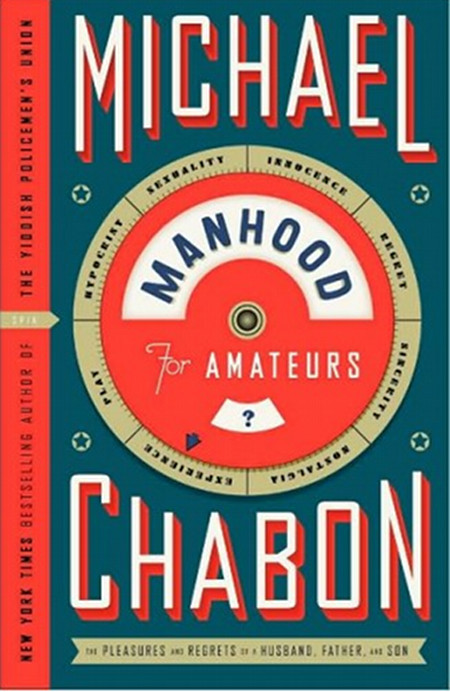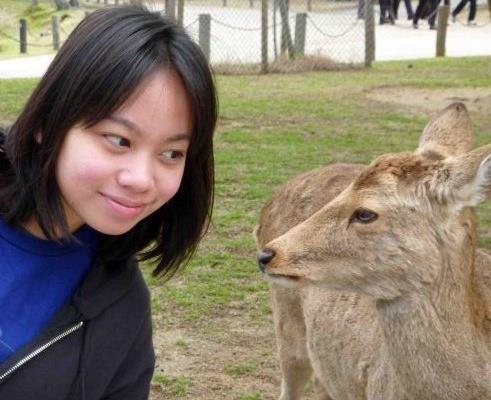SUMMARY
This is AI generated summarization, which may have errors. For context, always refer to the full article.
 MANILA, Philippines – What is the fastest way to a man’s heart?
MANILA, Philippines – What is the fastest way to a man’s heart?
His stomach. Sports. Cars. His kind of music, in LPs, maybe. Comic books. His man cave. A knife.
So many potential answers, so little time for the confused girlfriend, wife, daughter, sister or friend of the human male.
You could pursue all these paths, and perhaps have some fun along the way.
Or you could just read Michael Chabon’s “Manhood for Amateurs” — a non-fiction treatise on boyhood, manhood, fatherhood, marriage and divorce.
I love “Manhood for Amateurs” because it provides insight on the elusive male mind. Finally, here is a book that shows me what it’s like to be a man.
The challenge Chabon has imposed upon himself is a lofty one, and he succeeds. Through his honest, eloquent, engaging voice, his anecdotes on manhood become relatable.
For example, there’s the first woman who makes you understand lust. For Chabon, it was a comic book superheroine named Big Barda. Let that sink in for a while.
More poignantly, there is the link between him and his father-in-law, and how the mere concept of “manliness” can bind two strangers together.
What I learned from Chabon’s writing is that the stereotypes that pop culture throws around about men — for example, that they never want to ask for directions, or that they always have to be in control — are true, but are still more complex than we think.
The way he writes about these moments is poignant and detailed. Take this passage on male bravado:
“This is an essential element of the business of being a man: to flood everyone around in a great radiant arc of bullshit, one whose source and object of greatest intensity is yourself. To behave as if you have everything firmly under control even when you have just sailed your boat over the falls. ‘To keep your head,’ wrote Rudyard Kipling in his classic poem ‘If,’ which articulated the code of high-Victorian masculinity in whose fragmentary shadow American men still come of age, ‘when all about you are losing theirs’; but in reality, the trick of being a man is to give the appearance of keeping your head when, deep inside, the truest part of you is crying out, Oh, shit!”
This is the kind of writing Chabon displays throughout the entire book: long, complex, meandering sentences, tightly reined in by his knowledge of craft. His vocabulary is sparse and clean; his narration is firmly within the realm of the concrete — then he suddenly surprises you with an emotional, deeply insightful passage such as the one above.
Chabon’s book is not self-help, nor is it a manual on how to be a manly man. It’s more of an extended conversation on the various aspects of being male, and what it takes to get there.
It’s not a tawdry tell-all on his life, either: underneath all of the emotion and detail of “Manhood for Amateurs” is a quiet restraint, a sense that Chabon is telling you only the pertinent details of his life, nothing else for pity or for shock value.
Chabon leaves you in awe of manhood, not in the sense that men are oppressive and must be feared, but with the understanding that they also struggle. Pop culture bombards us everyday with cliches and oversimplifications of how men and women act, which one has the upper hand.
Books like Chabon’s are an antidote to this kind of thinking. Just because historically — and politically — men have the upper hand, doesn’t mean that life is easy for all of them.
And so I recommend “Manhood for Amateurs” not just to women who want to learn how the male mind works, but to men themselves. We live in a culture where we have a few good men, and Chabon is one of them.
Pick up a copy of “Manhood for Amateurs,” and you may just go from novice to expert. – Rappler.com
You can also read:
- The other F-word: Caitlin Moran’s ‘How to Be a Woman’
- Elegy for the lost: Nick Joaquin’s Pop Stories
- Reading with Flips Flipping Pages
- Highbrow, lowbrow: Conversation with Peter Swirski
- Barbara Demick’s Nothing to Envy
- A love letter to the library
- Overthinking the book store
- Be still, my Precious Hearts
- Book review: Pico Iyer’s The Global Soul
- ‘World War Z’: Compelling speculative history
- Remembering Konigsburg’s ‘Mixed-Up Files’
- Lepers in love: Monstress by Lysley Tenorio
- The man behind ‘Monstress’
- Review: Anthony Bourdain’s ‘A Cook’s Tour’
- Essential books for the student writer
- Thomas Hardy’s ‘A Mere Interlude’
- Bookstores big and small: The Manila scene

Florianne L. Jimenez teaches Literature and College Writing at the University of the Philippines Diliman. She is a Palanca award-winning non-fiction writer, with a creative interest in the self, places, and consciousness. She has a massive to-be-read pile dating back to 2008, which includes such titles as ‘The Collected Stories of Gabriel Garcia Marquez,’ ‘Book 5 of Y: The Last Man,’ and ‘The Collected Works of TS Spivet: A Novel.’
Add a comment
How does this make you feel?
There are no comments yet. Add your comment to start the conversation.